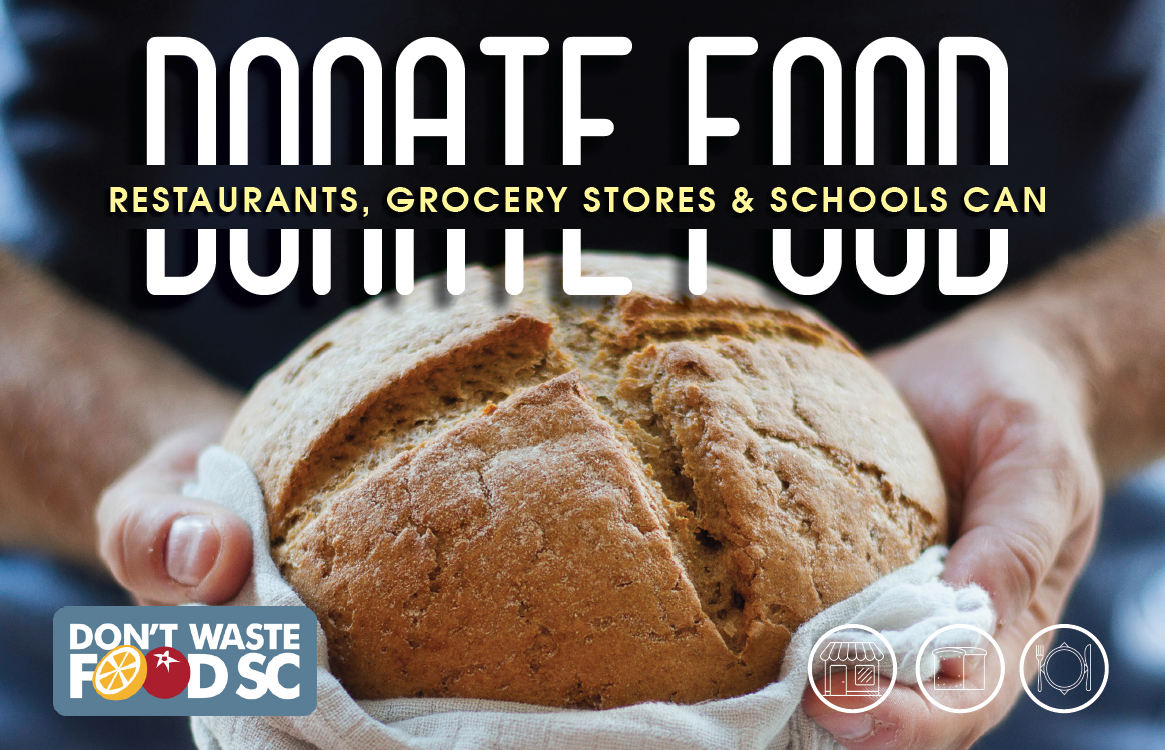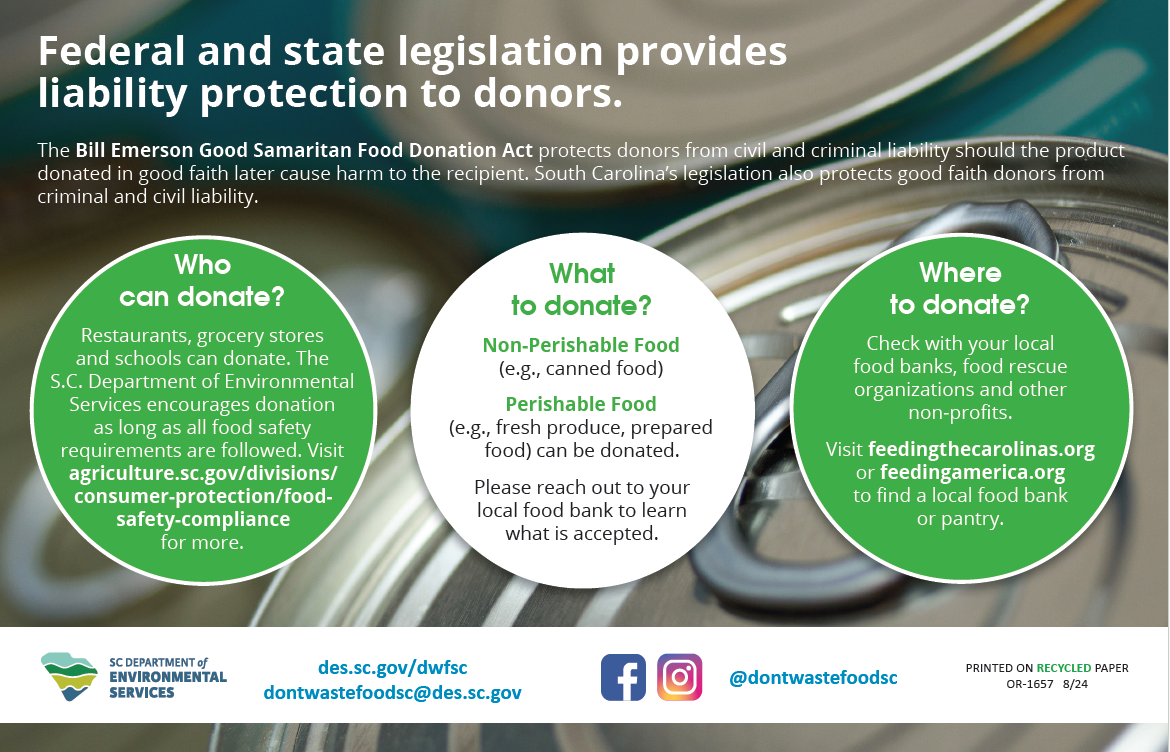The U.S. restaurant industry generates about 11.4 million tons of wasted food annually at a cost of roughly $25 billion every year. For every $1 invested in food waste reduction efforts, restaurants can realize about $8 of cost savings.
Quick tips to prevent & reduce food waste in restaurants/hospitality:
- Download SCDES's Smart Businesses Don't Waste Food Guide.
- Conduct a waste audit. Determine what you waste and how much it's costing your business.
- Crop Planning. Meet with a local farmer to plan your menu around what is in season or available.
- Buy ugly. Restaurants don’t have a requirement to only purchase perfect produce. Help reduce waste by using odd-looking fruit and veg for value added items, or encourage your customers to stop rejecting those that look different.
- Use FIFO. First in, first out.
- Be creative with kitchen excess. Create new dishes out of repurposed ingredients like broths, stocks, and soups. Use unusual parts of produce like squash blossoms and stems.
- Donate. Instead of tossing extra produce, canned goods, or prepared but unserved food, develop relationships with local food banks and shelters. Feeding the Carolinas can help you find neighboring agencies. Feeding the Carolinas Foodbanks
- SCDES supports and encourages donation. Is it legal for restaurants and other businesses to donate? YES!


- Compost. Find a compost hauler/vendor or community garden. Find vendors via the SC Recycling Markets Directory.
Benefits:
- Potential cost savings.
- Feeding people, not landfills.
- An opportunity to enhance reputation with guests, staff, and investors. A study by Unilever revealed that 72 percent of American diners care about how restaurants handle food waste and 47 percent would be willing to spend more to eat at a restaurant with an active food recovery program.
- Increased job satisfaction through employee engagement in the program.
Other Resources:
- SCDES's S.C. Smart Business Recycling Program provides free, confidential technical assistance for recycling and food waste reduction.
- The S.C. Department of Agriculture offers information about Retail Food Safety and Compliance.
- ReFed's Restaurant Food Waste Action Guide provides restaurants with measurement and tracking tools, best management practices and more to help prevent wasted food, save money, and be a leader in the industry.
- The Food Waste Reduction Alliance is an industry-led initiative focused on reducing wasted food by increasing donation and diverting unavoidable food waste from landfills through productive use (e.g., composting). FWRA also offers a Tool Kit for interested businesses.
- Leanpath offers technology and recommendations to restaurants to reduce wasted food.

